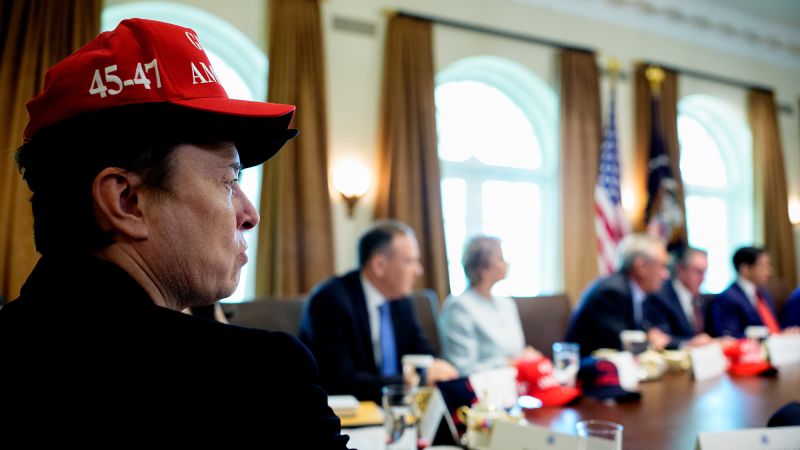Elon Musk’s involvement in the American political landscape has reached new heights as the billionaire has reportedly invested a staggering amount of over $290 million to support the reelection of Donald Trump for the 2024 election cycle. His financial contributions reflect a deep commitment to political funding, aiming to sway the balance in favor of his chosen candidates. However, this heavy investment seems to be shifting, as Musk recently indicated a desire to scale back his political expenditures.
At the Qatar Economic Forum, Musk articulated his decision to significantly reduce his political spending in the future. “In terms of political spending, I’m going to do a lot less,” he stated during his interview with Bloomberg’s Mishal Husain. When pressed on his motivations for this sudden retrenchment, Musk cited a lack of immediate necessity to continue his financial support for political endeavors. He asserted, “I think I’ve done enough,” while leaving the door open for potential future contributions should circumstances change.
The scale of his prior spending is substantial; Musk not only funneled significant resources into Trump’s campaign but also made a considerable investment in a Wisconsin Supreme Court race, which did not result in a victory for his favored candidate. His political aspirations, bolstered by a pledge of $100 million towards Trump-affiliated political groups, have faced challenges and pushback as financial commitments raise questions regarding influence and accountability.
Despite his recent assertions to back away from the political arena, Musk maintains a connection with Washington D.C. His role as a prominent advisor in the White House and head of the Department of Government Efficiency required a deeper involvement in governmental matters. However, Musk has decided to revert his focus primarily to his business interests, including Tesla, which has been navigating difficulties linked to his political affiliations. Nonetheless, Musk intends to remain in contact with political figures, indicating plans for frequent visits to the nation’s capital for discussions and meetings.
Musk’s substantial business interests raise valid concerns about potential conflicts of interest. In a press conference, he rejected such notions, stating, “I don’t have formal power,” which implies that his role does not wield the authority typical of governmental leadership. If any of his companies were perceived to receive contracts improperly, he challenged the assertion, asserting that evidence would be swiftly brought to light given his public profile.
His businesses have benefited from political dynamics, especially under the proposed budget from the current administration. During the interview, Husain raised points about international interest in Musk’s Starlink satellite service, linking it to countries trying to align with the Trump administration’s policies. For instance, the South African government’s attempts to enable Starlink’s operational capabilities were highlighted as a potential means to foster relations with the U.S.
When questioned about possible conflicts of interest stemming from Starlink’s operations and governmental policies, Musk dismissed the idea, attributing delays in regulatory approvals to racial biases that he claims exist within the system. The assertions he made regarding discriminatory practices drew further scrutiny, as South African officials refuted his claims regarding the business climate for Starlink.
Musk’s interview with Husain marked a notable moment as it introduced a level of skepticism and challenging questions that contrasted with the more friendly interviews he has often participated in. Husain, recognized for her incisive journalism, confronted Musk on critical issues, leading to a tense and at times heated exchange. As Musk faced a barrage of tough inquiries, his frustration became evident, particularly when the discussion shifted to deeper societal issues such as South Africa’s laws aimed at economic equality—a context Musk appeared keen to navigate while evading direct answers.
Overall, the intersection of Elon Musk’s political funding and his business ventures places him in a uniquely controversial position within the current socio-political arena. His attempts to juggle these dual roles—as a business titan and a political influencer—will likely continue to shape discussions not only regarding his enterprises but also about broader implications for governance and corporate influence on democracy. Thus, one can speculate if Musk’s change in strategy regarding political spending represents a pivotal moment for his operations or simply a temporary recalibration in an ever-evolving political environment.



